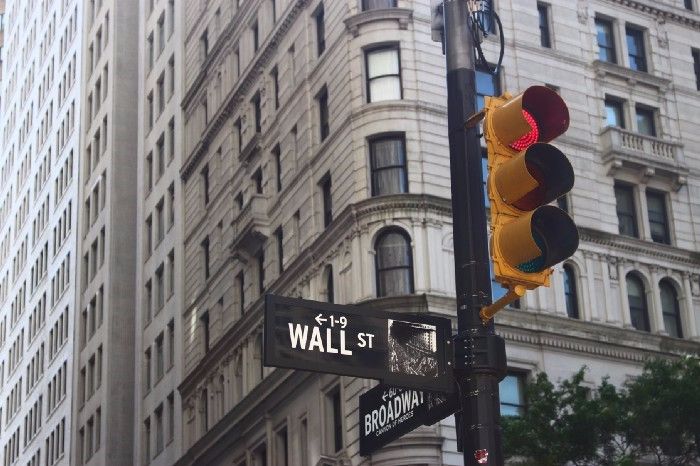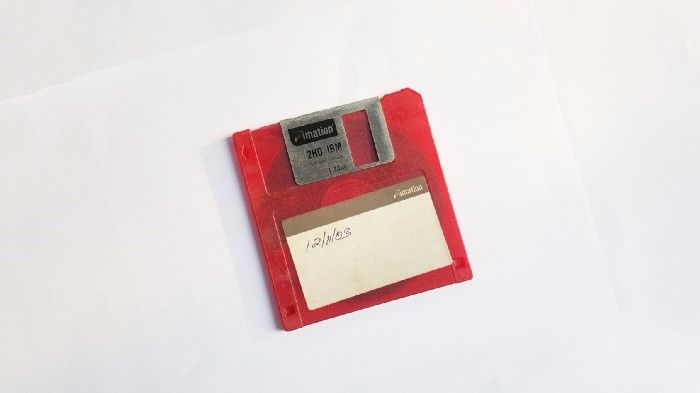Observation | What hinders the large-scale application of blockchain?
Like most innovative technologies, the blockchain has encountered considerable resistance. Most people still think of "criminal activities," "drugs," "scams," or "hackers" when they hear the word.
It is human nature to face change with suspicion and ridicule. The media and Internet culture have broken the notion that blockchain, bitcoin and cryptocurrency can get rich quickly, or simply think of what the "Occupy Wall Street" movement came up with.

The blockchain is far less exciting and practical than many people realize. Blockchain is a technology that can be applied to real life, making some processes more efficient: by reducing middlemen and motivating each of them to become a “good participant,” making everyone in the ecosystem His position. As a society, we constantly challenge innovation and ridicule those who put pressure on the status quo.
- Multinational currency is being swallowed up, surpassed, replaced by Bitcoin
- The relationship between Barclays Bank and Coinbase is over! The user may be a little troublesome
- The Bitcoin Mining Index has continued to grow in recent years. What is the trend of 2019?
The Wright brothers are considered losers until they succeed. Can you imagine that before the plane appeared, did you encounter two brothers making "aircraft" in their garage? It sounds ridiculous!
If the modern version of the Wright brothers are now engaged in the next travel innovation in a garage in Silicon Valley, they may not get much support.
Not long ago, people thought that the Internet was just a fashion. It competed in an institution as old as the United States. These institutions have been around for too long and no one thinks there is any reason to change.
When we mentioned the blockchain, we saw the same ridicule. However, when mainstream media continued to devalue the technology, large financial institutions and investors such as BlackRock and Peter Thiel have begun to put money into the market. Although retail investors are skeptical and blunt about this area, their financial advisers are preparing to start investing. Goldman Sachs recently released an analysis report on Bitcoin, whose short-term goal is much higher than the current price level, indicating that the openness of Bitcoin assets has increased.
In any case, even qualified investors and banks are beginning to change their perceptions of digital assets, and there are still numerous obstacles.
In order to have a real impact, the practical application of the blockchain needs to overcome numerous obstacles.
1. Humans don't like innovation
Imagine what they heard when the Internet pioneers first began to spread the gospel. What is the purpose of the Internet? Before you can pay your bills, check your bank balances, and communicate with people around the world – what features of the Internet can be an important part of modern life? We often review new technologies and think of their large-scale application. The road is quick and easy, but when everyone is standing at the finish line to watch the marathon, their views are positive.
In fact, the Internet has been widely adopted after a difficult period of time, much like the crypto-asset market. The Internet soon became a trend, but the process of developing a landing product that can be used by a large number of users was slow.

Think about the many applications of the Internet today:
(1) watching TV;
(2) Listening to music
(3) class, pay the bill;
(4) Buy tickets for almost anything.
In order to land these applications, companies and organizations must adopt new infrastructure. When bankers first heard technical experts advocating how to use the Internet to transfer funds, they might laugh out loud.
How can this be safe?
Why would someone trust the money to the Internet?
However, despite the ridicule and total distrust of the Internet, virtual payment bills and even deposit checks have become the norm. Almost everything we rely on on the Internet. The Internet has become an infrastructure for innovation. It promotes technological advances in countless industries and allows open source collaboration on a global scale: this means that millions of people from all over the world can work together to solve complex problems.
If you've followed news and public opinion about cryptocurrencies, these stories may seem familiar. Bitcoin has been hyped by the media, and the public's perception of the blockchain is mostly wrong. They think it is synonymous with bitcoin. In fact, the blockchain is the basis of digital currency.
The blockchain is in bitcoin, just like electricity to light bulbs. It is this technology that makes it possible, but the utility of blockchain goes far beyond the transfer of value, just as the utility of electricity goes far beyond one. The bulb is powered the same.
When electricity was invented, there was no suitable infrastructure to implement it. The built houses cannot be installed with wires, and electricity can only be generated from selected locations, and in general, it is inconvenient to use. The existing infrastructure is not suitable for new technologies, which is the essence of innovative technology. If something is challenging the status quo, why does the status quo create a system that fits perfectly into it? When it emerges, it is seen as a fashion for the rich, the dreamer, and the madman.
It's hard to believe that the Internet will have so many uses today, because the institutions we now communicate primarily through the Internet have not yet established a system that uses this technology. It is considered unsafe, so utilities do not use it to transfer bills, which usually contain sensitive information about the biller. Today there are some new technologies that have the potential to solve the serious problems facing the world, but we are hesitant to adopt them. Electric vehicles can help us avoid the environmental damage caused by the industrial revolution. Vertical agriculture can indeed solve the problem of hunger in the world, but these have not become norms because changes are difficult.
2. Why do humans hate innovation?
Innovative technologies must successfully adapt to the infrastructure of their predecessors, and once adapted, they must thrive – defeating their predecessors on their own territory. Only then will the general public begin to adopt it, and large organizations will begin to create solutions that meet the new paradigm.
The problem is that the infrastructure on which new technologies flourish depends on the vested interests and the use of new technologies can be devastating to their interests. Take electric vehicles as an example: electric vehicles are experiencing resistance not from automakers, they have begun to produce electric cars, and resistance comes from oil and gas companies. Too much capital is invested in the infrastructure needed to produce oil and gas, and these companies must do this if they want to survive.
The Danish-based Maersk Drilling has begun to develop new drilling platforms and is expected to cost $4 to $6 billion this year. What are the motives for these companies to stop? According to them, they are creating profits that are consistent with the current system and are very beneficial. If the system does not collapse, don't fix it.

Have you ever wondered why electric car manufacturers always boast about how far a charge can go? Because there is not enough supply of generators when electric power is invented, there are not many charging stations for electric vehicles. In order for them to be widely adopted, they first need to thrive in the current system, although they face structural resistance.
Here, it's easy to portray an oil and gas company as an enemy, but imagine your home or family as an organization.
Why don't you install solar panels to power your home?
You can help the environment, generate enough electricity to make money from the power company every month, you don't put a small portion of the oil and gas company into the infrastructure for gasoline distribution, but you are still hesitant to adopt an innovation But in the long run, this will benefit your financial situation and the global environment. Change is difficult, and changing infrastructure is difficult and expensive.
3. The future of blockchain
In order for the blockchain to reach the same level of application as the Internet or electricity, it will need to compete with the world's oldest and largest infrastructure, the financial infrastructure. Facebook recently caused a stir in the US government because they announced plans to launch their own digital currency, Libra. The US government does not want Facebook to control a currency. They openly say that they think it is a threat to the dollar, which is the current infrastructure. Light bulbs are for electricity, bitcoin is for blockchain, and dollars are for credit and debt (our financial infrastructure). If the dollar is removed, the infrastructure will lose its biggest application scenario.

One of the hallmarks of Bitcoin and Bitcoin is that it gives individuals the ability to be their own bank – why banks are willing to make this vision a reality? Bitcoin is the first cryptocurrency that poses a threat to countless financial institutions From banks to remittances and even loans can be achieved through blockchains.
Banks and even governments can easily point to the blockchain, saying: Digital currency is too unstable for everyday currency, and transaction costs are too high to make it a viable solution when the blockchain network becomes crowded. The transmission time will be very long. This is because the blockchain is still in the stage of adoption, “it is only for the rich, the dreamer and the madman – it is still struggling for success on the infrastructure built for its predecessor”. What's really amazing about the blockchain is that the blockchain has managed to build its own infrastructure relatively quickly because of the growing connectivity that people experience over the Internet—increasing access to information and others. . Since the introduction of Bitcoin in January 2009, the market value of Bitcoin has grown with the growth of its user base, with a peak value of approximately $814 billion.
When society faces innovation and technology, it usually goes through four stages:
(1) ridicule;
(2) obstruction;
(3) Facilitating the development of technology;
(4) Accelerate technological development.
For the blockchain, we are currently in a "obstructed" state. It has been around for a long time, so most people won't ignore it as a fashion or scam. In fact, as long as the time is long enough, the established institutions and infrastructure will begin to resist change. When a technology becomes very powerful or widely used so that it can no longer be suppressed, companies and large organizations will begin to facilitate it as if they have been its supporters. In the end, it will become so mainstream that the original evangelists will lose interest, and user-friendly solutions will allow everyone, even if they are not well versed in technology, to participate in the blockchain revolution.
Source: https://medium.com/swlh/the-road-to-bitcoin-adoption-isnt-paved-very-well-87b4de20aace
Author: Reza Jafery
Translation: Bitker Institute
Disclaimer: This article was compiled by the Bitker Institute.
We will continue to update Blocking; if you have any questions or suggestions, please contact us!
Was this article helpful?
93 out of 132 found this helpful
Related articles
- Seed CX tests physical settlement of bitcoin swap contracts, scheduled to launch within three months
- Babbitt Column | Cai Weide: Only Digital Gold Can Fight Digital Dollars
- Bitcoin is not a value store, it will never be, Bitcoiners may be wrong.
- Pushing the SuperNode program, the "old" brand D network (DigiFinex) opens the transaction "new" world
- "Reverse refers to the king" Goldman Sachs strongly bullish bitcoin, the letter still does not believe?
- The other side of the three strikes of the Argentine bond: the government step by step to push the people from the peso to Bitcoin
- XRP investors filed a new lawsuit against Ripple to add that it meets securities standards and violates advertising laws




